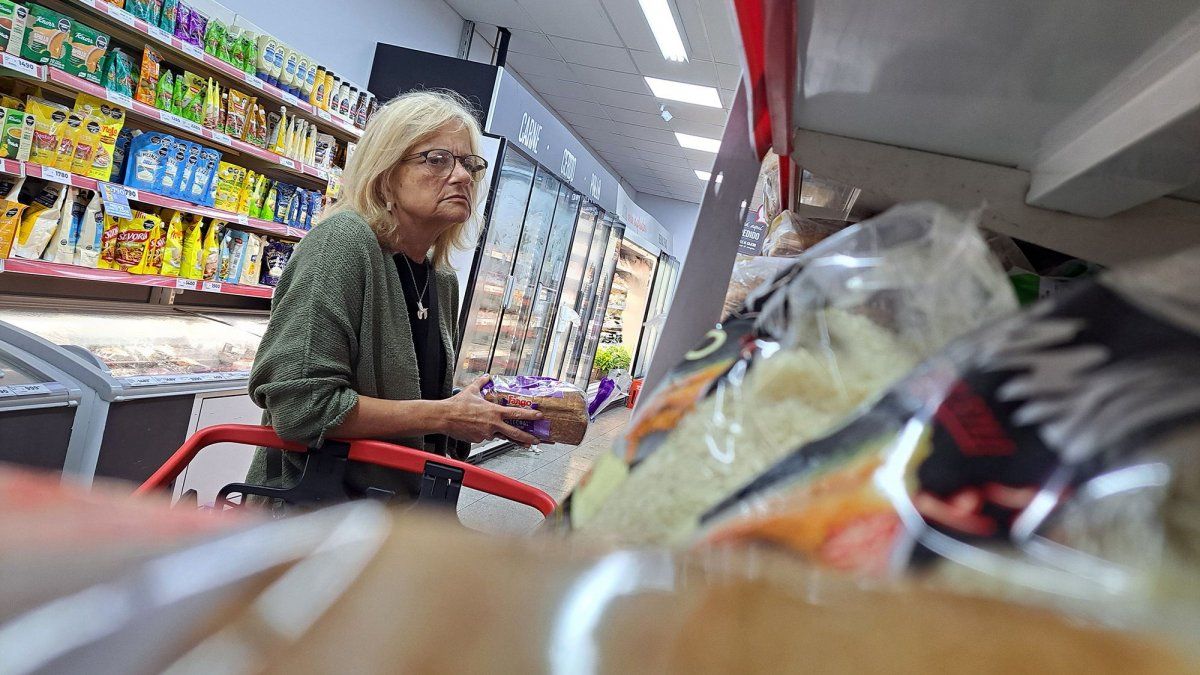The strong recession that the Argentine economy is experiencing continues to affect the massive consume. In June, the contraction in sales continued and reached double digits on an annual basis. In this context, the supermarkets They are betting on aggressive offers, although they recognize that fail to be sufficient.
Among the strategies they are using to try to improve the situation are mailing actions and price discounts. “We are directly applying all the tactics that suppliers use on a particular product. We are taking aggressive action to capture and try to recover some units. It is not possible yet, but we continue working like this in all regional chains,” explained Victor Palpacelli, president of CAS (Argentine Chamber of Supermarkets) to this medium.
Palpacelli admitted that they still feel immersed in the economic contraction and that there is no sign of a rebound in the short term, while He called for “measures that encourage consumption.” However, looking ahead, they are optimistic due to the drop in inflation.
As for payment methods, a increased use of plastic over cash and debit. However, he clarified that he views this trend with “concern.”The consumer is getting into debt “Not to buy electronics, but for mass consumption. That is alarming from our point of view, because it means that their income is compromised in the future,” Palpacelli said.
From another chain -one of the most important in the country-, they revealed that they are betting on promotions “of all kinds and colors.” These include discounts per unit, volume, bank discounts, virtual wallets, discount coupons to maintain loyalty, 3×2 and more. “We have had more than half of the products on sale. Over the weekend there were almost 20,000. Until last year, the number of days of offers was 3 days, today it is five,” explained one of its representatives.
Also consulted about the payment methods, they added that the use of installment purchases. In this sense, banks and virtual wallets are playing a fundamental role. A representative of the banks’ wallets, in dialogue with this medium, recently revealed agreements with large supermarket chains to increase the number of promotional days with discounts of up to 50%. There, both actors are seeking their benefit in the midst of the recession: on the one hand, increasing transactions and on the other, improving sales volume. In this sense, both recognize that today promotions are essential and the difference in sales volume without them, it feels.
The consumer outlook
From INDEC to consulting firms, a drop in consumption is reflected in an economy that moves with 70% of the internal market. The national statistics agency recently presented the sales results for April in supermarkets, wholesale self-service stores and shopping malls. According to the latest report corresponding to last April, supermarkets throughout the country registered a total turnover of 1.33 billion pesos, which resulted in a nominal growth of 246%. While it seems like a large number, the truth is that it was not high enough to beat inflation. It is worth remembering that, between April 2023 and the same month this year, the CPI grew by 289.4%. This shows that supermarket sales actually fell by 17.6% in real terms.
If sales are analysed by category, it can be seen that the vast majority fell in the year-on-year comparison in relation to inflation. In fact, this was the case for grocery products, which have the largest share in the total turnover of supermarkets (29.1% of revenues are explained by this item). According to the study, sales of grocery products fell by 1.8% compared to 2011. store increased by 259% in nominal terms (30.4 points less than the CPI). Also at a disadvantage were the dairy (282.4%), the meats (212.8%) and the drinks (218.5%), among others.
A consultancy that also measures mass consumption is Scentia, which showed that the numbers for May also paint a difficult picture. According to its report, sales of all channels collapsed 10% year-on-year in the fifth month of the year, with a decrease of 10.5% in chains and 9.5% in self-service stores. In this way, the overall contraction accumulated in 2024 until May is close to 8%. Looking ahead, the outlook is not good: “If there is an improvement, it will be towards the end of the year, but that will not change the end of 2024, which we see as negative between 7% and 8% compared to 2023, based on forecasts that economic consulting firms model with our data,” said the head of Scentia, Osvaldo del Rio.
inflation supermarkets wholesale prices consumption
Supermarkets, self-service stores and wholesalers have already recorded more than five consecutive months of falling sales.
Reuters
A third survey, from last month and the most recent, is that of Focus Market. According to Damián Di Pace’s consultancy, consumer goods prices rose 4.7% in June, while consumption fell more than prices.
“The food category, after having reached average year-on-year increases of up to 300%, decelerated to 220% in June. All consumer goods companies They offer promotions, offers and discounts to move excess stock, both in the wholesale and retail channels. Looking ahead, the expectation is that Smaller drop in sales of basic categories with the improvement in wage variation in relation to inflation. Although we must be very aware of the correction of regulated prices in the economy, such as rates for public and private services, such as prepaid medicine, expenses, education, TV, internet and cable, among others,” explained Di Pace. Today the conclusion in all supermarkets is the same: Real wage increases, together with other measures that encourage consumption, will be the key to boosting economic activity.
Source: Ambito




